- Home
- Tamara Leigh
Baron of Godsmere
Baron of Godsmere Read online
Contents
Title Page
Tamara Leigh Novels
Copyright Page
Epigraph
Prologue
Chapter One
Chapter Two
Chapter Three
Chapter Four
Chapter Five
Chapter Six
Chapter Seven
Chapter Eight
Chapter Nine
Chapter Ten
Chapter Eleven
Chapter Twelve
Chapter Thirteen
Chapter Fourteen
Chapter Fifteen
Chapter Sixteen
Chapter Seventeen
Chapter Eighteen
Chapter Nineteen
Chapter Twenty
Chapter Twenty-One
Chapter Twenty-Two
Chapter Twenty-Three
Chapter Twenty-Four
Chapter Twenty-Five
Chapter Twenty-Six
Chapter Twenty-Seven
Chapter Twenty-Eight
Chapter Twenty-Nine
Chapter Thirty
Chapter Thirty-One
Chapter Thirty-Two
Chapter Thirty-Three
Chapter Thirty-Four
Chapter Thirty-Five
Chapter Thirty-Six
Chapter Thirty-Seven
Chapter Thirty-Eight
Chapter Thirty-Nine
Chapter Forty
Epilogue
Excerpt
Tamara Leigh Novels
About The Author
BARON OF GODSMERE
Book One in The Feud Series
TAMARA LEIGH, USA Today Best-Selling Author
THE FEUD
England, 1308. Three noblemen secretly gather to ally against their treacherous lord. But though each is elevated to a baron in his own right and given a portion of his lord’s lands, jealousy and reprisals lead to a twenty-five year feud, pitting family against family, passing father to son.
THE DECREE
England, 1333. The chink in Baron Boursier’s armor is his fondness for a lovely face. When it costs him half his sight and brands him as one who abuses women, he vows to never again be “blinded” by beauty. Thus, given the choice between forfeiting his lands and wedding one of his enemies to end their feud, he chooses as his betrothed the lady said to be plain of face, rejecting the lady rumored to be most fair.
THE ENEMY
On the eve of the deadline to honor the king’s decree of marriage, the fair Elianor of Emberly takes matters into her own hands. Determined none will suffer marriage to the man better known as The Boursier, she sets in motion her plan to imprison him long enough to ensure his barony is forfeited. But when all goes awry and her wrathful enemy compels her to wed him to save his lands, she discovers he is either much changed or much maligned. And the real enemy is one who lurks in their midst. One bent on keeping the feud burning.
TAMARA LEIGH NOVELS
CLEAN READ HISTORICAL ROMANCE
The Feud: A Medieval Romance Series
Baron Of Godsmere: Book One, 02/15: Amazon
Baron Of Emberly: Book Two, Fall 2015: Amazon
Medieval Romance Series
Lady At Arms: Book One, 01/14 (1994 Bantam Books bestseller Warrior Bride clean read rewrite): Amazon
Lady Of Eve: Book Two, 06/14 (1994 Bantam Books bestseller Virgin Bride clean read rewrite): Amazon
Stand-Alone Medieval Romance Novels
Lady Of Fire: 11/14 (1995 Bantam Books bestseller Pagan Bride clean read rewrite): Amazon
Lady Of Conquest: Spring, 2015 (1996 Bantam Books bestseller Saxon Bride clean read rewrite): Amazon
Dreamspell: A Medieval Time Travel Romance, 03/12: Amazon
INSPIRATIONAL HISTORICAL ROMANCE
Age of Faith: A Medieval Romance Series
The Unveiling: Book One, 08/12: Amazon
The Yielding: Book Two, 12/12: Amazon
The Redeeming: Book Three, 05/13: Amazon
The Kindling: Book Four, 11/13: Amazon
The Longing: Book Five, 05/14: Amazon
INSPIRATIONAL CONTEMPORARY ROMANCE
Head Over Heels: Stand-Alone Romance Novels
Stealing Adda, 05/12 (ebook edition): Amazon
Stealing Adda, 2006 (print edition): NavPress
Perfecting Kate, 03/15 (ebook edition): Amazon
Perfecting Kate, 2007 (print edition): Multnomah
Splitting Harriet, 2007 (print edition): RandomHouse/Multnomah
Faking Grace, 2008 (print edition): RandomHouse/Multnomah
Southern Discomfort: A Contemporary Romance Series
Leaving Carolina, 2009 (print edition): RandomHouse/Multnomah
Nowhere, Carolina, 2010 (print edition): RandomHouse/Multnomah
Restless in Carolina, 2011 (print edition): RandomHouse/Multnomah
OUT-OF-PRINT GENERAL MARKET TITLES
Warrior Bride, 1994: Bantam Books
*Virgin Bride, 1994: Bantam Books
Pagan Bride, 1995: Bantam Books
Saxon Bride, 1995: Bantam Books
Misbegotten, 1996: HarperCollins
Unforgotten, 1997: HarperCollins
Blackheart, 2001: Dorchester Leisure
*Virgin Bride is the sequel to Warrior Bride
Pagan Pride and Saxon Bride are stand-alone novels
www.tamaraleigh.com
BARON OF GODSMERE: Book One (The Feud) Copyright © 2015 by Tammy Schmanski, P.O. Box 1298, Goodlettsville, TN 37070, [email protected]
This novel is a work of fiction. Names, characters, places, incidents, and dialogues are either the product of the author’s imagination or are used fictitiously. Any resemblance to actual events, locales, organizations, or persons, living or dead, is entirely coincidental and beyond the intent of the author.
ISBN-10: 1-942326-99-1
ISBN-13: 978-1-942326-99-1
All rights reserved. This book is a copyrighted work and no part of it may be reproduced, stored, or transmitted in any form or by any means (electronic, mechanical, photographic, audio recording, or any information storage and retrieval system) without permission in writing from the author. The scanning, uploading, and distribution of this book via the Internet or any other means without the author’s permission is illegal and punishable by law. Thank you for supporting authors’ rights by purchasing only authorized editions.
Cover Design: Ravven
“When love has fused and mingled two beings in a sacred and angelic unity, the secret of life has been discovered so far as they are concerned; they are no longer anything more than the two boundaries of the same destiny; they are no longer anything but the two wings of the same spirit. Love, soar.”
~ Victor Hugo, Les Miserables
PROLOGUE
Barony of Kilbourne, Northern England
Winter, 1308
“You ask that we betray our liege?” Ulric de Arell scorned, though the disgust in his voice did not reach his eyes.
“And our king?” This from Rand Verdun, his disbelief seemingly genuine, though more likely he merely wished to be astonished.
Sir Archard Boursier leaned back against the trestle table and narrowed his gaze on the two with whom he had requested this meeting. Like them, he was vassal to Baron Denis Foucault of Kilbourne. Unlike them, he had little to lose.
“If we do not stand on the side of right,” he said, silently amused by the tic at the corner of Verdun’s mouth, “’tis England we betray.”
Verdun glanced at De Arell. De Arell glanced back.
They would acquiesce. Must acquiesce. Despite differences rooted in jealousy and manifested in recriminations, squabbling, and the occasional crossing of swords, it was imperative the three ally.
>
“A betrayal for a betrayal,” Verdun said with accusation.
Archard pushed off the table. “You were there. You heard what Foucault told and yourself advised he stand with the earl and the baronage against the king and that miscreant he calls friend.” The insufferable Piers Gaveston, who had been named England’s regent in the king’s absence.
Archard shifted his gaze to De Arell. “You said the same. Do you now claim you were wrong?”
“I do not!” De Arell barked, then grunted. He did not like being led to bait—worse, sinking his teeth into it.
Floorboards creaking beneath his weight, Archard crossed the candlelit room of the inn he had procured for their meeting. He halted a stride from the two men, nodded at the purse on De Arell’s belt. “Still you will deliver the missive to the king?”
The man’s nostrils flared. “I am pledged to Foucault.”
Archard drew a deep breath, grimaced at air fouled by travelers who paid to sprawl upon flea-infested pallets in this chamber. But not this night. This night, only three gathered here, noblemen all. And not to sleep, but to decide loyalties that would not be without betrayals.
“Just as Foucault is pledged to the earl,” Archard reminded both men.
Verdun opened his mouth, but before he could state the obvious, Archard did it for him. “Dare not say the earl owes anything to a king such as that, or I shall knock the words back down your throat!”
As Verdun’s mouth twitched with greater zeal, Archard stared at this one whose face women sighed over, a face with which Verdun’s young son was also gifted—or cursed, if one asked this man who aspired to be better known for his valor.
“So like De Arell,” Archard said, “you will aid Foucault in betraying the earl?”
Verdun’s jaw shifted. Of the two men, he would be the most difficult to turn. Though a worthy adversary, he was more honorable than most—at times, dangerously so.
“Or will you stand with me?” Archard pressed.
Of a sudden, De Arell stepped forward, causing the one he encroached upon to ready his head and hand to wield his blade.
“In all this,” De Arell said, “what has The Boursier to lose?”
Though others titled Archard such, it was with reverence for his skill at swords and fists. In this instance, it was a taunt embedded in a question meant to remind him he was but a knight, unlike these two whom Foucault had made castellans. “What have I to lose?” he said between his teeth. “Certes, not what should have been mine.”
The man’s eyebrows arched into the hair upon his brow. “Is that why you ask this of us? To see us reduced to landless nobles the same as you?”
Hold! Archard counseled the hand that ached for the hilt. It would take more than the word of a knight to convince the earl that Foucault betrayed him. At the least, the missive was needed. At the best, the accord of De Arell and Verdun.
Archard jammed his fingers into his palms. “What do you think will happen when the earl discovers his baron has gone the side of the king?”
“If he discovers it,” De Arell submitted.
“He shall. Be it a fortnight, be it a year, he shall learn of Foucault’s faithlessness. Then you may find yourself as landless as I.”
The arrow struck, bleeding a long silence. Not that the two men had not considered such an event, for they were not fools.
“If Foucault is stripped of his title and lands,” Verdun was the first to speak, “what will become of his son?”
The baron’s heir. Though the young man had earned his spurs five years past, Simon Foucault had yet to return from France despite his father’s insistence that he take his place upon the barony of Kilbourne. Instead, he remained in service to the count who had fostered him during his knight’s training. As for refusing his obligations, Simon was clear on that. Why sacrifice his desires when Archard Boursier could better serve in his absence and would one day serve the son as he had served the father?
Fresh anger coursing through him, Archard said, “He will find his own way.”
“What of Baron Foucault’s daughter?” Verdun asked.
She who was besotted with Archard, marriage to whom might have seen him awarded lands of his own. However, Foucault had refused to yield to her pleading to wed one who was landless—and too valuable in his current position.
“As her mother will likely return to her family in Scotland,” Archard said, “she will surely accompany her.”
Verdun heaved a sigh. “Mayhap we shall yet convince Baron Foucault—”
“Have we not tried?” Archard snapped. When their liege had told of the noblemen who had united to seek the banishment of Piers Gaveston under threat of revolt, De Arell, Verdun, and Archard had all agreed it was best for England. Foucault had not. Though he had taken the oath alongside the other barons and put his name to the Declaration of 1308, he intended to warn the king of what the baronage intended and, henceforth, serve as the crown’s eyes and ears.
“What do you hope to gain, Boursier?” De Arell asked with a sly smile. “The earl’s favor?”
Archard glanced at the single window with its filthy oilcloth that glowed from the light of torches outside. “I want what was first promised to me, but given to you, De Arell. I want what was next promised to me, but given to you, Verdun.”
De Arell laughed.
Narrowing his gaze upon the man, Archard spread the strings on his purse, reached inside, and touched gold. However, when he withdrew his hand, it was dirt upon his fingers—the color of daub that held together peasants’ homes. Still, it was as gold to him. Baron Foucault had given him a handful ten years past as promise Castle Mathe would be his, a second handful six years past as promise Castle Kelling would be his, a third handful a fortnight past as promise the castle to be raised to the east would be his. But just as the first two promises had been broken, the last would come to naught.
As senior household knight and adviser, he had ensured the barony’s workings and revenues all these years, and Foucault needed him to remain in that position. Thus, promise after promise Foucault had made lest Archard Boursier pledge himself to another.
You should have! he admonished. What fool you were to cling to the belief you would be rewarded for your faithful service.
Even so, despite the longing to pass something worthwhile to his young son, perhaps he could have accepted being overlooked, but Foucault’s decision to stand against the baronage was an offense upon which he could not turn his back. Nor could De Arell and Verdun if they had a care for themselves and their families. And England.
Archard broadened his shoulders. “Regardless of my gain—if there be any—you know this is right, that if the barons do not prevent the king and Gaveston from grinding England underfoot, all will lose.”
The muscles of Verdun’s face jerking—a tic here, a tic there—he strode to the door and came back around. “This I know!” He looked to De Arell. “As do you.”
De Arell considered him, then moved his gaze to Archard and inclined his head. “Very well, I am with you—providing I have your word. Should the earl reward us, you shall support my bid for the barony. As will you, Verdun.”
Archard nearly laughed. “You? Baron of Kilbourne?”
“There is none worthier.”
That could be argued, but it was a waste, especially since the height to which De Arell aspired was impossible for any of them to attain. Though much of Kilbourne was wooded and uncultivated, it was a barony of good proportion and prospect. If the earl removed Foucault, a mere castellan would not replace him. Still, it behooved Archard to agree.
“And my reward, De Arell?” he asked.
“As I shall take Foucault’s residence for my own, you shall have that which I now keep—Castle Mathe.” He smiled wide enough to reveal a gap where a back tooth had been pulled. “A lord at last, Boursier.”
Vassal to De Arell. Laughable.
“What do you propose for me?” Verdun asked, though Archard was certain that neither did he be
lieve the earl’s gratitude would extend to elevating a castellan to a baron.
De Arell’s hesitation was pretense, of that Archard was certain. Before the man had arrived at the inn, he had known exactly what he came for. But if his plotting resulted in the earl learning of Foucault’s betrayal, England would be in the hands of the baronage. And, God willing, the earl would show his appreciation by granting Archard his own lands.
That would be enough, he assured himself. Even if his reward was an obscure demesne in the north, all that mattered was a home for his motherless son, Bayard.
At last, De Arell answered Verdun. “Though my eldest son is betrothed, a worthy husband my youngest son will make your daughter.”
Verdun took nearly as long to respond, but finally said, “So be it.”
“So be it,” De Arell repeated and looked to Archard.
Silently cursing them both, Archard jerked his chin. “So be it.”
Thus, a pact was made between three men who loathed one another, none of whom could guess that the earl would split Kilbourne into three lesser baronies and reward the betrayers by naming each a baron in his own right. Of greater surprise was that which was bestowed upon Archard Boursier—Foucault’s residence, the prized and impregnable Castle Adderstone.
CHAPTER ONE
York, England
Early autumn, 1333
Rage hurtled up Bayard Boursier’s throat, but before the emotion could cast itself across his tongue, the king leaned near and warned, “Make your sacrifice an honorable one, Boursier.”
Bayard glared at England’s third Edward—all twenty and one years of him to his vassal’s thirty and one. Golden hair sifting in air that wafted the scent of summer’s end, the whelp arched an eyebrow.

 FEARLESS: Book Two: Age of Conquest
FEARLESS: Book Two: Age of Conquest BOUNDLESS: A Medieval Romance (AGE OF CONQUEST Book 6)
BOUNDLESS: A Medieval Romance (AGE OF CONQUEST Book 6)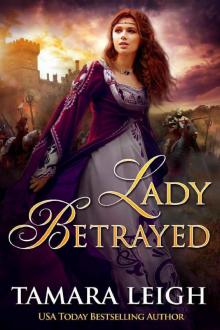 Lady Betrayed
Lady Betrayed Merciless
Merciless Nowhere, Carolina
Nowhere, Carolina Virgin Bride
Virgin Bride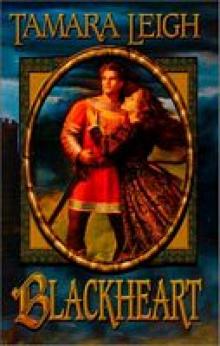 Blackheart
Blackheart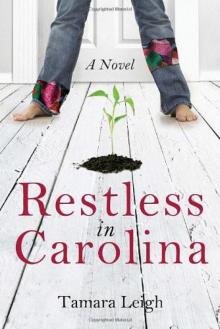 Restless in Carolina
Restless in Carolina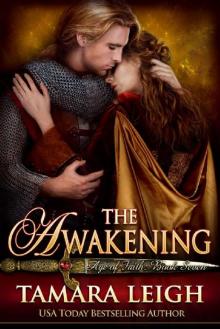 THE AWAKENING_A Medieval Romance
THE AWAKENING_A Medieval Romance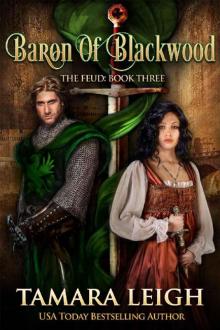 Baron of Blackwood
Baron of Blackwood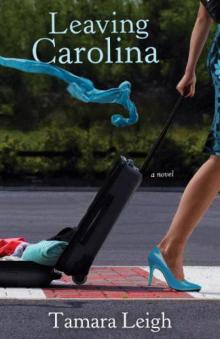 Leaving Carolina
Leaving Carolina HEARTLESS: A Medieval Romance (Age of Conquest Book 4)
HEARTLESS: A Medieval Romance (Age of Conquest Book 4)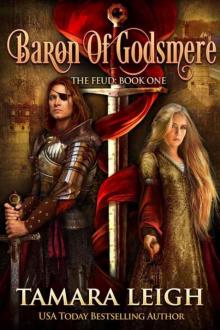 Baron of Godsmere
Baron of Godsmere Lady Of Eve
Lady Of Eve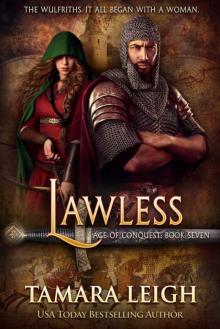 LAWLESS: A Medieval Romance (AGE OF CONQUEST Book 7)
LAWLESS: A Medieval Romance (AGE OF CONQUEST Book 7) Lady Of Fire AKA Pagan Bride
Lady Of Fire AKA Pagan Bride The Yielding (Age of Faith)
The Yielding (Age of Faith) The Redeeming: Book Three (Age of Faith)
The Redeeming: Book Three (Age of Faith)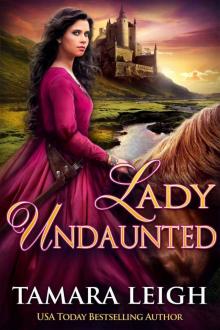 LADY UNDAUNTED: A Medieval Romance
LADY UNDAUNTED: A Medieval Romance THE RAVELING: A Medieval Romance (Age of Faith Book 8)
THE RAVELING: A Medieval Romance (Age of Faith Book 8)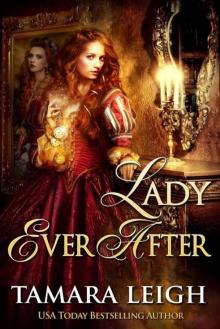 LADY EVER AFTER: A Medieval Time Travel Romance (Beyond Time Book 2)
LADY EVER AFTER: A Medieval Time Travel Romance (Beyond Time Book 2)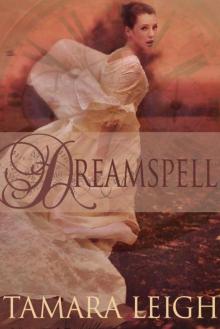 Dreamspell
Dreamspell The Unveiling (Age of Faith)
The Unveiling (Age of Faith) THE RAVELING
THE RAVELING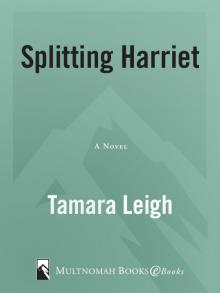 Splitting Harriet
Splitting Harriet Age of Faith 4 - The Kindling
Age of Faith 4 - The Kindling THE RAVELING_A Medieval Romance
THE RAVELING_A Medieval Romance Perfecting Kate
Perfecting Kate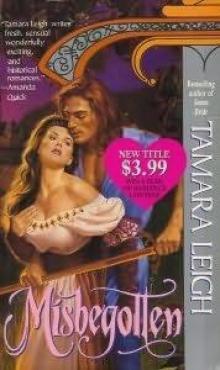 Misbegotten
Misbegotten THE VEXING: A Medieval Romance (AGE OF FAITH Book 6)
THE VEXING: A Medieval Romance (AGE OF FAITH Book 6)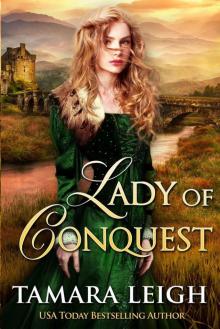 LadyOfConquest:SaxonBride
LadyOfConquest:SaxonBride